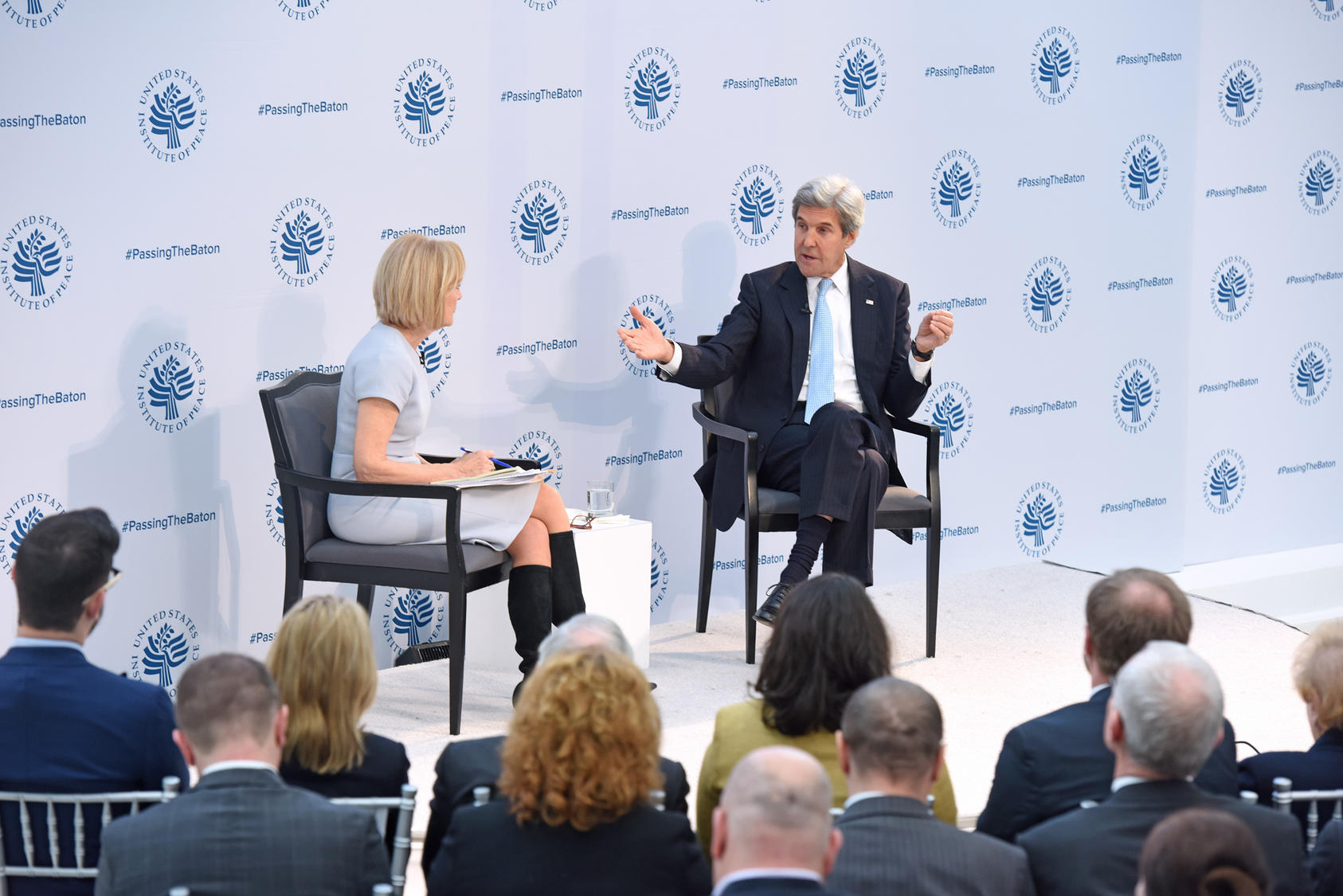Secretary Kerry Defends Obama Foreign Policy
Passing the Baton Recap: A Conversation with Secretary of State John Kerry
Secretary of State John Kerry contested what he called “revisionist commentary” about the Obama administration’s foreign policy, laying out a defense of achievements such as a global climate change agreement and the Iran nuclear accord, as part of the U.S. Institute of Peace’s “Passing the Baton” conference on Jan. 10. Kerry also shared his concerns about what he called the “fact-less political environment” and the President-elect’s penchant for communicating foreign policy positions on Twitter.

“What troubles me a little bit is that people are not separating a remarkable transformation that has taken place globally, naturally, from things that we’re really responsible for,” Kerry said in a discussion with Judy Woodruff, anchor and managing editor of PBS NewsHour. “Arab Spring -- we didn’t start the Arab Spring. We couldn’t have stopped the Arab Spring. We couldn’t have put a lid on it.”
The revolutions in the Middle East and North Africa, most of which deteriorated into violent conflict, happened spontaneously, he said, “because of where those countries found themselves relative to modernity, to the global economies, to their own governance challenges and to the centuries old passions and definitions and differences that have defined those countries for a long time.”
“But as I listen to some of the revisionist commentary, and they’re saying, 'Well the Obama administration didn’t do this or didn’t do that or whatever.' There’s no way the Obama administration doing anything would have changed what was happening in those countries.”
For the U.S., Kerry said that the rise of the “fact-less political environment” has had dire consequences for the nation’s capability to effectively confront major foreign policy and national security issues, including China, Russia and the fragility of states where governance is weakened by incompetence or illegitimacy and makes movements such as violent extremist groups seem like desirable alternatives to some citizens.
“How is democracy going to move faster and more efficiently, given the increasingly hard task of building consensus without the consumption of facts?” he said.
Kerry pledged to work to “restore a measure of accountability to our system” once he’s out of office.
Although not naming Trump directly, Kerry said, “If policy is going to be made in 140 characters on Twitter, and every reasonable measurement of accountability is being bypassed, we have a problem,” Kerry said. His comments were echoed at other points of the conference by speakers such as former Secretary of State Madeleine Albright.
Kerry bemoaned the lack of critical debate about climate change during the election cycle, as well as other crucial topics that were overlooked amid more salacious subjects.
When asked about the transition at the State Department from President Obama’s administration to President-elect Trump’s, Kerry said it was going “pretty smoothly,” primarily because “there hasn’t been a lot of it.”
He said he hasn’t yet met his replacement, former ExxonMobil chief Rex Tillerson, who testified today in a nomination hearing before the Senate Foreign Relations Committee. “I’m still expecting to meet with my successor at some point in the near term,” Kerry said.



